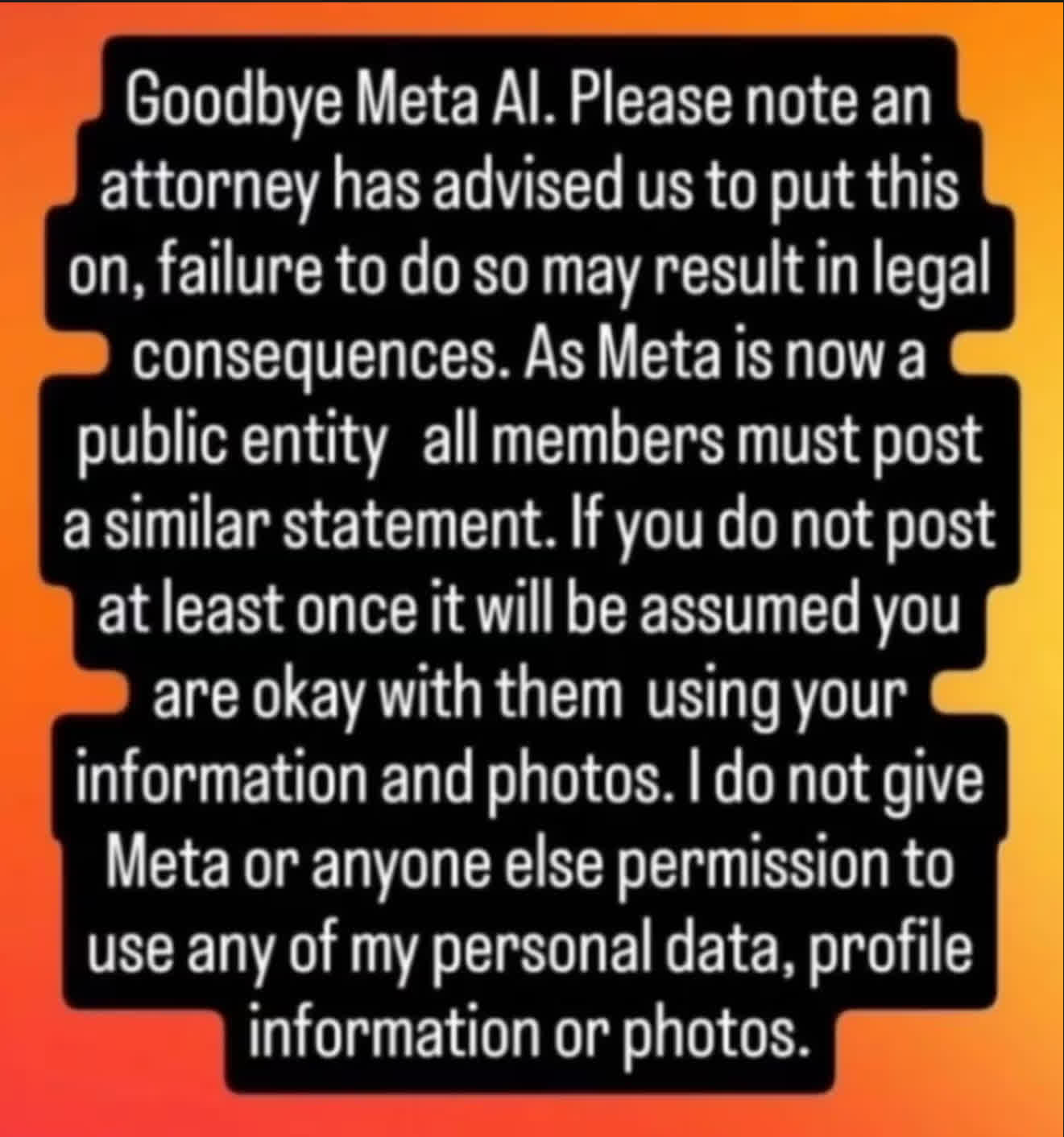Facepalm: Once again, social media users are reposting messages in the mistaken belief that it will stop Meta from using their content – in this case, for AI training. The "Goodbye Meta AI" post that has mostly appeared on Instagram Stories has fooled the likes of Tom Brady and James McAvoy, but, like every other allegedly copyright-protecting viral post in history, it isn't legally binding, as confirmed by Meta itself. However, there are other ways to protect yourself from Meta's AI.
It's estimated that over 600,000 people have fallen for the hoax post, which states that the poster does not give Meta or anyone else permission to use any of their personal data, profile information, or photos. The post has been prompted by the advice of an unnamed attorney, apparently.
Anyone who's seen this sort of thing before – there's a long history of similar social media copypastas – will know it's a total waste of time, and does nothing to protect people's content from the platform owner.
Meta has confirmed that the viral post is not a valid way of objecting to its data-collection practices. The fact it is poorly worded and starts with "Goodbye Meta AI," should probably have given that away. Some of these posts are now being labeled by Meta as "false information" and linking to fact-checking website Leadstories.com.
Meta said earlier this year that as of June 26, it would use public user content to train and improve its AI services, so it's easy to understand people's concerns. European users can opt-out by visiting the Meta Privacy Center from their Facebook account, selecting "data settings" and then "off-Facebook activity." From here, select "manage your data" and turn off "data sharing" and "A.I. model training."
Instagram users can go to "settings," then "about," and then "privacy policy" to be directed to information on how to opt out.
There doesn't appear to be a definitive way for US users to stop Meta from using their posts for AI training, though it is believed that setting accounts to private gives the company fewer opportunities to do so.
A popular copypasta that spread on Facebook in 2016 threatened the company with the law UCC 1-308- 1 1 308-103 and the Rome Statute if it made everything users had ever posted, even deleted material, public – something that was rumored at the time. The Rome Statute is the legal framework set up by the International Criminal Court that deals with genocide, crimes against humanity, and war crimes, which seems a bit excessive for copyright violations.

